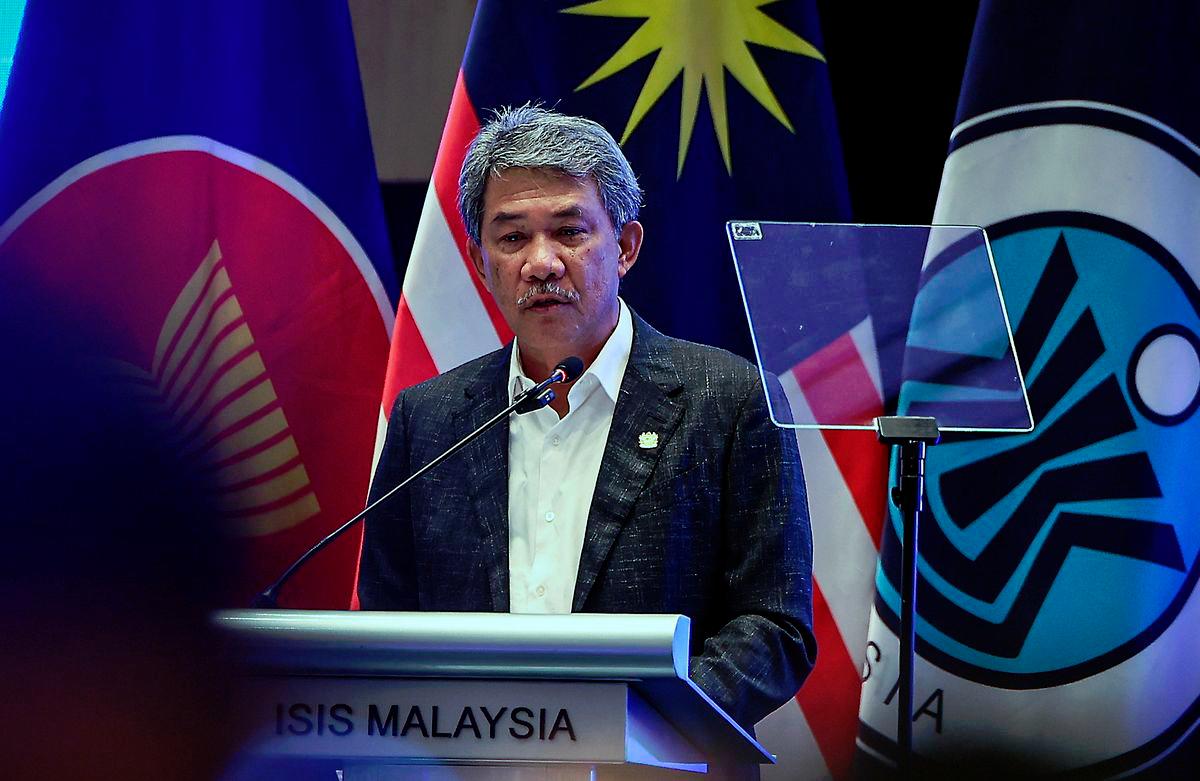KUALA LUMPUR: Malaysia has called for a ‘drastic overhaul’ of the current framework of multilateralism, urging countries in the Asia-Pacific to adapt to a world marked by persistent global disruptions, insecurity, and weakened international cooperation.
Foreign Minister Datuk Seri Mohamad Hasan said Southeast Asia must not be passive in the face of major power rivalries and should chart its own course by reinforcing ASEAN’s collective strength and shared moral responsibility.
“We are not simply observers. We have a duty to each other and a role to play as citizens of this world.
“This is the philosophy underpinning Malaysia’s global outlook,” he said during his keynote address at the Welcoming Dinner of the 38th Asia-Pacific Roundtable (APR), here, Tuesday.
He stressed that ASEAN must reject narrow nationalism and strengthen its community-based principles to navigate a post-normal world marked by disruption and instability.
“Multilateralism is buckling under the pressures of isolationism around the world,”
“We must stop pinning the weight of our hopes on any one partner to carry us through instability, but instead nurture the kind of international cooperation that enables us to support each other,” he said.
He highlighted the crisis in Myanmar as one of the most pressing challenges facing the regional bloc.
Mohamad said the situation has not only brought immense suffering to the people of Myanmar but also jeopardised ASEAN’s moral standing and regional stability.
“The blowback that neighbouring countries have received, from this, is undeniable,” he said, citing the rise in transnational crimes, job scams, and a deepening refugee crisis as direct consequences of the unrest.
He said ASEAN must take decisive steps to ensure a pragmatic resolution that includes sustained engagement with all stakeholders, improved coordination of humanitarian aid, and clear demonstrations of ASEAN’s commitment to peace.
Mohamad reiterated Malaysia’s stance that the region must not merely serve as a geopolitical buffer.
“It is a new Cold War and we must, as we always have, adapt and overcome. We must be the speakers, and not the spoken-for,” he said.
He warned that conflicts outside the Asia-Pacific are not distant events for the region, as they directly impact energy prices, food security, arms procurement, migration patterns, and investment flows.
“These external conflicts challenge the frameworks that underpin peace and security in our region. This not only means a duty to engage in dialogue, but a duty to voice out when injustice becomes the norm,” he added.
Meanwhile, Mohamad also reiterated Malaysia’s stance on the situation in Gaza, condemning the ongoing assault and the global community’s silence.
“We will not see the end of this, for as long as members of the international community continue to excuse genocidal actions as self-defence,” he said.
He added that Malaysia had warned the situation could escalate into a regional war which has now become a reality following Israel’s strikes on Iran.
He also warned of the economic impact of the strike, including surging global oil prices.
“Global oil prices have already surged, as stakeholders expect major supply disruptions,” he added.
The 38th APR, held from June 17 to 19, is a premier regional forum organised by ISIS Malaysia.
This year’s theme, ‘Recalibrating Asia’s Frontier’, brings together diplomats, scholars, and policymakers to address rising geopolitical tensions, shifting power dynamics, and the future of regional cooperation in an increasingly uncertain world.









